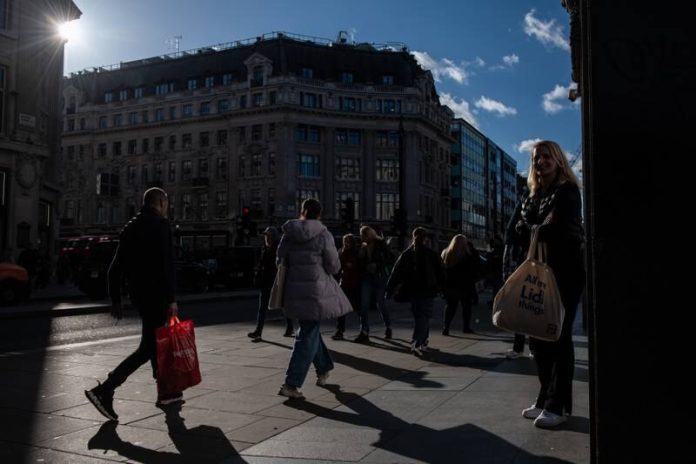Economic analysts believe the UK economy is in “dire fiscal circumstances” as it heads towards recession with no room to cut taxes or increase public spending to stimulate growth, according to Independent.
The Institute for Fiscal Studies (IFS) says the UK faces a “moderate” recession in the first half of 2024 as the struggle to grow the economy continues and borrowing costs remain high.
It comes after the Bank of England’s chief economist warned that there was still hard work to be done to bring UK inflation back under control, a hint that another base interest rate rise is possible. In its Green Budget report assessing the state of the public finances ahead of Chancellor Jeremy Hunt’s autumn statement, the IFS said there was no room “any time soon” for the tax cuts Tory MPs want.
The IFS report, based on analysis by Citi, warns that the UK will enter a recession in early 2024 that will last for nine months. The report also predicts gross domestic product (GDP) will fall by 0.7 per cent next year. Paul Johnson, the director of the IFS, said:
We are in a horrible fiscal bind. The price of our high levels of indebtedness, failure to stimulate growth, and high borrowing costs is likely to be a protracted period of high taxes and tight spending.
The IFS says there is no room for tax cuts or spending increases, despite the fact that a six-year freeze on income tax thresholds would result in an extra £52bn a year by 2027, equivalent to a 6p rise in the basic and higher rate of income tax.
Paul Johnson, director of the IFS, said the amount raised by the process of ‘fiscal drag’ – whereby people move to higher rates of income tax as their wages rise – was “extraordinary”.
Rishi Sunak‘s government could face having to increase public spending more than planned, the IFS has warned, offering a stark assessment of the situation facing a Labour government if it wins the 2024 general election.
Real cuts to the recurrent budgets of many government departments and reductions in spending on investment in public services are likely after March 2025, the report says. This is despite growing pressure to improve services such as the NHS and commit to spending in areas such as defence and childcare.
Government borrowing will be around £20bn lower this year than the Office for Budget Responsibility (OBR) predicted in March. However, debt levels have risen as borrowing costs have increased and inflation remains higher than planned.
According to the Consumer Price Index, UK inflation will fall to around 4.3% by the end of the year – meaning Mr Sunak will deliver on his promise to halve inflation by the end of December.
The IFS believes interest rates will remain above 5 per cent until mid-2024, when the Bank of England may begin to cut rates in an orderly fashion. However, the Bank faces its own challenge to reduce inflation while avoiding a deeper recession, which could be exacerbated by higher interest rates.
